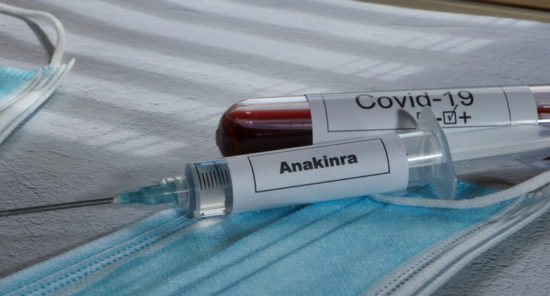POCN, the largest NP and PA network in the United States, has recently partnered with the Association of Pulmonary Advanced Practice Providers (APAPP) to complement POCN’s network as a distinguished member of the Breathe Better Network (BBN) so that they can raise awareness among practitioners about novel therapies and management strategies in pulmonary care. The BBN is part of the Learn More Breathe Better program, an initiative from the National Heart, Lung, and Blood Institute (NHLBI) that comprises multiple stakeholders with the common goal of advocating respiratory health.
By leveraging its proprietary platform POCN+, the first comprehensive streaming service offering educational materials exclusively for advanced practice providers (APPs), POCN can provide an unmatched breadth of information combined with the ability to reach all corners of the APP community. The ultimate goal of the partnership with APAPP is to enhance providers’ awareness of current recommendations in pulmonary care, including the most current asthma guidelines, which, before 2020, were last updated in 2007.
To provide patients with the best care possible, it is essential that clinicians remain updated about treatment guidelines, including those for chronic respiratory conditions such as asthma. By joining the BBN, POCN has committed to keeping its APP members well informed about the latest recommended therapeutic strategies for dealing with asthma signs and symptoms so that they can offer sufferers the most relief possible.
It is also crucial for APPs to stay up to date about advances in diagnostic and therapeutic approaches to various diseases, and asthma is no exception. The first expert panel report from the National Asthma Education and Prevention Program, another NHLBI initiative, was published in 1991, with subsequent updates in 1997, 2002, and 2007. No further revisions were offered for 13 years, which, considering the pace of biomedical research and innovation, felt like a lifetime for clinicians, many of whom were left ill-informed on the developments in asthma therapy.
The most recent update, published in 2020, focuses on six key areas:
- fractional exhaled nitric oxide (FeNO) testing in asthma diagnosis, monitoring, and treatment
- indoor allergen mitigation
- allergen immunotherapy
- intermittent inhaled corticosteroids (ICSs) for asthma treatment
- long-acting antimuscarinic agents for asthma treatment
- bronchial thermoplasty for adults with severe asthma
Ann Hefel, MSN, FNP-C, a member of the executive committee of APAPP, is one of many APPs who have reviewed the new guidelines. She noted, “One of the recommendations being widely discussed within pulmonary and allergy specialty clinics is the use of as-needed ICSs and short-acting beta agonists (SABAs) concomitantly versus daily low-dose ICSs and as-needed SABAs for patients >12 years of age with mild persistent asthma.” Three studies were reviewed by the panel, which found no differences between these two treatment groups in asthma control, quality of life, or the need for rescue inhalers. Ms. Hefel added, “While intermittent ICS use may not be ideal for all individuals with mild persistent asthma, this treatment option and the above recommendations should be considered when aiming to implement optimal asthma management in the APP office.”
“As the annual rate of emerging NP and PA graduates is growing, the number of physicians is shrinking,” said Corinne Young, president and founder of APAPP. “APPs have the ability to bridge this gap, and by ensuring that the latest guidelines and techniques are well understood by this group of providers, we can ensure that excellent patient outcomes remain the highest priority.”
Echoing this sentiment, Richard Zwickel, the founder and CEO of POCN, added, “We are witnessing increasing numbers of NPs and PAs filling the gap in pulmonary care, making this partnership a natural fit to spread awareness of these new asthma guidelines. POCN is committed to advancing the abilities of APPs by providing the most updated knowledge on treatments and therapies available to asthma patients to ensure exceptional patient care.”
Contributors:
Ann Hefel, FNP-BC, RN is a full-time certified lead nurse practitioner affiliated with Children’s Hospital Colorado who specializes in pediatric allergy and immunology, with a focus on asthma. Her clinical areas of interest include allergic rhinitis, atopic dermatitis (eczema), urticaria, asthma, and food and drug allergies.
Gary Rothbard, MD, MS is a professional medical writer and consultant based in New York City, specializing in medical and healthcare articles targeted at a variety of audiences, from children through clinicians. His credits include manuscripts, abstracts, study summaries, guidelines updates, drug summaries, posters, slide decks, feature articles, lecture summaries, flashcard sets, advice columns, laboratory exercises, and chapter and textbook reviews.
Sources:
Calhoun WJ, Ameredes BT, King TS, et al. Comparison of physician-, biomarker-, and symptom-based strategies for adjustment of inhaled corticosteroid therapy in adults with asthma: the BASALT randomized controlled trial. JAMA. 2012;308:987-997.
Cloutier MM, Baptist AP, Blake KV, et al. 2020 focused updates to the asthma management guidelines: a report from the National Asthma Education and Prevention Program Coordinating Committee Expert Panel Working Group. J Allergy Clin Immunol. 2020;146(6):1217-1270.
Papi A, Canonica GW, Maestrelli P, et al. Rescue use of beclomethasone and albuterol in a single inhaler for mild asthma. N Engl J Med. 2007;356:2040-2052.
Boushey HA, Sorkness CA, King TS, et al. Daily versus as-needed corticosteroids for mild persistent asthma. N Engl J Med. 2005;352:1519-1528.









